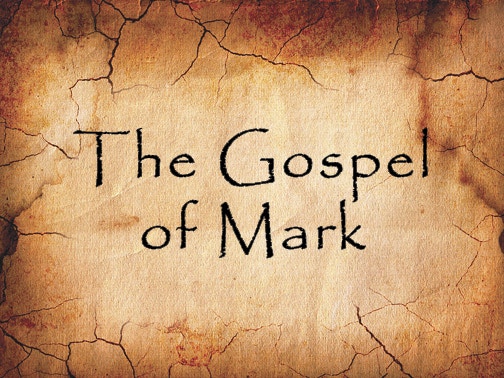
You Shall Be My Witnesses
Dr. Lewis F. GallowayThe Resurrection of Jesus invites us to become a part of God's witnessing community as we share the good news of God's forgiveness, life, and love with everyone we meet. We witness to our faith in worship, but our witness truly begins when we open the doors of the church to the world. The Holy Spirit gives us listening ears, compassionate hearts, and thoughtful words for sharing the Gospel with others.

To Live as Children of God
Dr. Lewis F. GallowayLent is a season that helps us grow together as Children of God in the face of a challenging world.

Voices from the Past for the Days that are Ahead
Dr. J. Lewis JohnsonThe Hebrew prophets were persons who emerged during troubled days to speak what they understood to be “the word of the Lord”. When read in the context of the present – and seen as applicable to both their era and ours – they have helped me and will hopefully help you to get a better grasp of life in our difficult times. These voices of the past have brought me to a deeper awareness of the way God worked during their life. I have wrestled to extrapolate meaning for this day in which we live. This is the background thinking and study that have led to the present series of sermons, which will continue until Thanksgiving. “Voices from the Past for the Days that are Ahead” invites you to explore the prophetic writings in the hope of finding light for your path. In the words of Jesus. “Let those who have ears, hear and those who have eyes, see.”

The Gospel of Mark
Dr. Thomas EvansThis Sermon Series is based on an ancient preaching pattern called Lectio Continua. It refers to a verse-by-verse approach that takes you through an entire book. We will not be following this pattern strictly, but my hope is by the end of this series it will feel as if we have.
For the most part, we approach the Bible in bits and pieces. This disjointed approach inevitably skews our understanding. Just like most any written work, the books of the Bible are meant to be read as a whole, not in small brief sections. We will be using the Gospel of Mark and by the end I feel certain you will gain entirely new insights and perspective that cannot come from an occasional brief foray in this gospel.
Mark has crafted an amazing framework and powerful themes that build a case verse-by-verse and chapter-by-chapter. It is decidedly dramatic how this approach adds an entirely new layer, while creating a comprehensive grasp of Jesus’ story. We will also leave with a much clearer understanding that Mark is a story written by a specific person, at a specific time in history, for a specific purpose, to a specific group of people. This clarity will enrich its power and open more deeply the divine word to us today.
As you probably know, Mark is the shortest gospel and thought to be the earliest written, around 64 AD – a few years before the destruction of the Temple. Most of my research for this series came from two commentaries: Binding the Strong Man by Ched Myers, a sociopolitical reading, and Mark by Lamar Williamson, whose book is part of a preaching series known as “Interpretation”.
As we begin to unpack the Gospel of Mark, we will find that nothing should be taken for granted. Not even referring to this as the “Gospel of Mark.”
First, there is no claim of authorship within the text itself! The name of this book, Mark, does not appear until at least 120 AD. It is attributed to St. Mark the Evangelist (Acts 12:12; 15:37), an associate of St. Paul and a disciple of St. Peter. Secondly, to call this a “Gospel” is to assume a tremendous amount.
The word, “gospel,” comes the from old English word, gōd “good” + spel “news”. It was the word which simply meant “good news”.
As a literary genre a gospel is not a biography, especially this gospel. It contains nothing about Jesus’ birth, hardly anything about his family or life experiences. The entire book is about the last three years of his life and most of it about his last week. Most all biographical questions are left unanswered. Some believe Mark adapted a literary genre common to the time known as Aretalogies, or divine-man biographies. These works were about a famous hero that had been built up to make him god-like, for example Julius Caesar.
However, Mark’s Gospel seems to be the first of its kind, paving the way for dozens of others to be written in centuries to come; not so much about the life of Jesus, but written rather as a story with the purpose of answering this question: “Who is Jesus of Nazareth?”

Draw Near to God
Dr. Thomas EvansDuring the month of June, we will explore how we can use the Bible not only to learn more about God and how to live our lives, but how to use the Bible to draw nearer to God. Through learning how to pray the scriptures, you will discover that the presence of God is as close as the Bible on your bookshelf.

Our Sacred Space
Dr. Thomas EvansWe have spent a year renovating our Sanctuary and I would like all of us to take some time to consider this gift.
During Lent, the sermon series will explore the Sanctuary’s role in focusing our hearts and minds to worship Almighty God.
* We will examine the Cross, its central role in our worship space and how our entire faith hangs on this centerpiece of our sanctuary.
* We will spend a week talking about the Organ, the Choir Loft, and the Domed Ceiling. We will see how these parts of our Sanctuary both turn our eyes heavenward and root us in the world today.
* We will examine the historical role of the Pulpit in reformed worship, the beautiful crafting of our brand-new pulpit, and the symbolism meant to focus on us on the presence of God in the Word of God.
In successive weeks, we will turn to the sacraments: Baptism and the Lord’s Supper.
* We learn about the crafting of various baptismal fonts throughout the history of the church and how our glass font focuses on the central element of the sacrament – water.
* Then as we turn to the table - to the time at which the altar of sacrifice became the table of fellowship.
Together, let’s be thankful to God for this amazing Sanctuary that turns our hearts and minds to the presence of the Lord.

Awkward Verses in the Bible
Dr. Thomas E. EvansPresbyterians are people of the Book, that is, all we believe and do is based upon the Bible. But, clearly, there are passages we no longer follow and some things we believe even seem contrary to Scripture. This series, we will be exploring those texts which prove problematic or inconvenient for our beliefs today. So, together, let’s discover the enduring power of God’s Word while gaining a clear understanding of how to resolve the problematic nature of these passages for our faith today.

Finding Peace
Dr. Thomas E. Evans
For this Sermon Series, we will be chasing the ever-elusive goal of peace. We will be looking through a Biblical lens to learn:
… how to have peace with our past, through not holding the mistakes of our youth against us and not harboring resentment for those who have done us wrong, in a word… forgiveness;
… how to have peace with the present, through accepting the blessings we do have while learning not to constantly grasp for more, in a word …contentment;
… how to have peace with the future, through a clear-eyed understanding that history is in the hands of God and that His power is sufficient, in a word… faith.
Striving for peace is a deeply Biblical endeavor. In the King James version of scripture, the word appears 429 times! The more things change the more they stay the same. Peace will always be on the top of humanity’s needs and the Bible tells us how to find it!
Join us in worship and together let us seek that “Peace that passes all understanding,” that we find in our Lord Jesus Christ.

Making Your Day in the Godly Way
Dr. Thomas E. EvansWe will use the book of Ephesians to guide our daily walk of faith that will enable us to give the morning, afternoon, and night to God.
Through our words, the melodies of our hearts, and the strength of our will, Ephesians will help us be Godly in all our dealings with others, our disposition throughout the day, and a restful sleep at night knowing we have done our faithful best.

Questions You Always Wanted to Ask God
Dr. Thomas E. EvansI recently asked some staff and members: “If you could ask God any question what would it be?”
Some of the questions had to do with God’s supreme love. “Why did you do this for us? Were we really worth it?” Other questions focused on the nature of faith. “God, what do you think of doubters?”
Some people focused on the world and where it was headed, along with a sense of God’s apparent inaction. “Why don't you take more decisive action? Why not just end the world and redeem it now? Why do you remain hidden?”
And then there were the personal questions having to do with loss. “Why did you take my husband so soon? Why are some born, live a life of suffering, and then die?”
So … get ready. We are going to do a deep dive into scripture in order to wrestle with these thorny questions. Some of the answers will be welcome. Some will be puzzling and even frustrating. But if we do so with faith, God will reward us.

